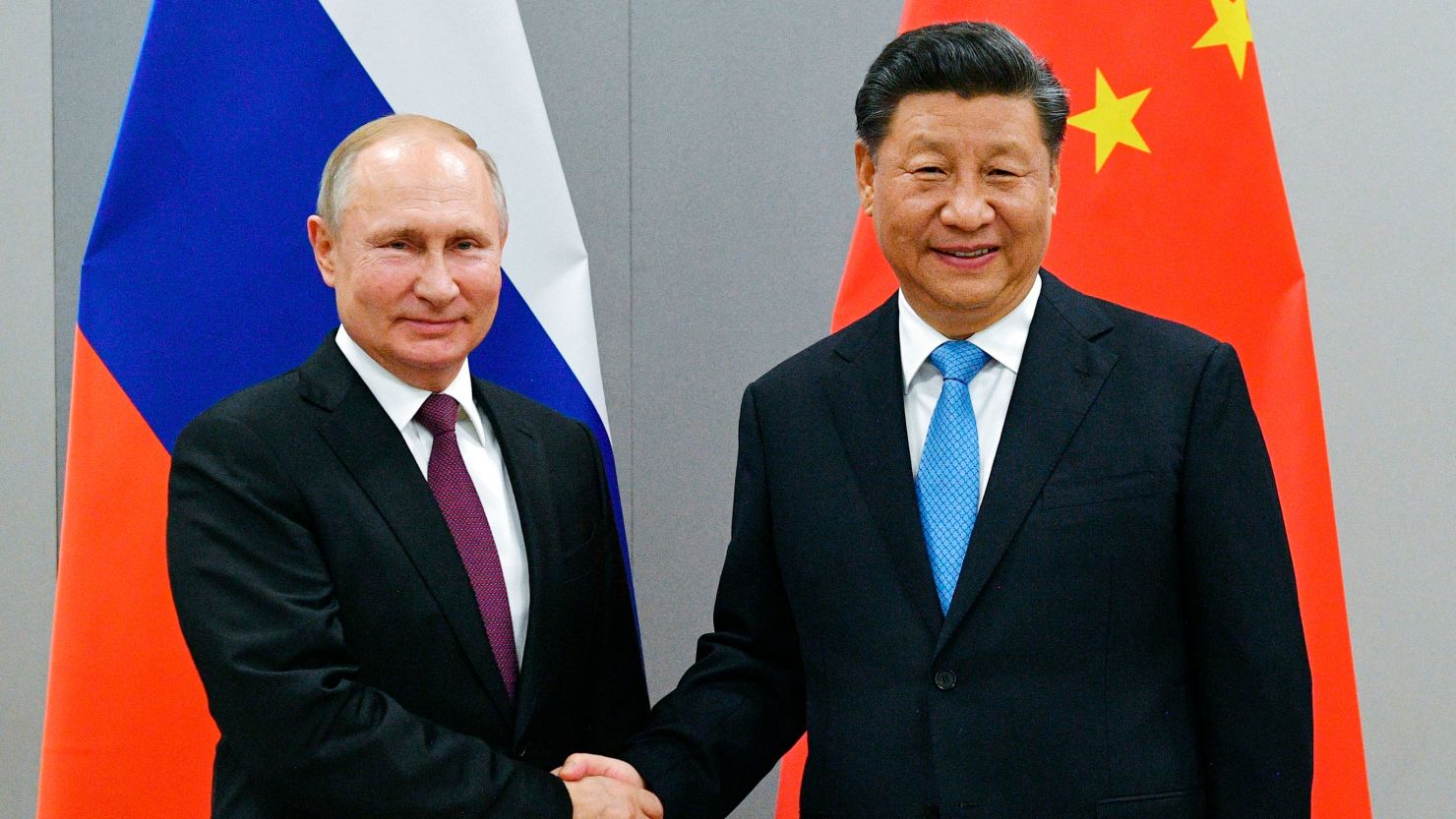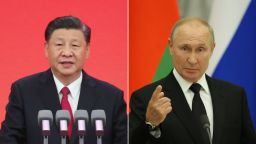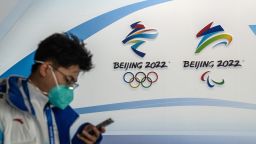When China’s leader Xi Jinping opens the Beijing Olympics on Friday he will be flanked by leaders who are unlikely to quell the chorus of concerns these Games are bolstering an authoritarian regime.
Of the just over 20 presidents, prime ministers, heads of state and royalty set to attend the Opening Ceremony of the Beijing Winter Olympics on Friday, around half of those dignitaries hail from authoritarian countries with several others listed as “hybrid regimes,” as classified by The Economist Intelligence Unit’s Democracy Index 2020.
Democratic leaders including from Singapore, Argentina, Ecuador, Mongolia, Poland and Serbia were included in a list of attendees released by China’s Foreign Ministry last week, ahead of a Games already plagued with controversy.
But notably absent will be leaders of major democratic powers, as Britain, Australia and Canada are among those to join a US-led diplomatic boycott of the Games, citing Beijing’s human rights record. Others, including leaders from New Zealand, the Netherlands, Sweden, and Austria have declined invitations, citing the pandemic or Beijing’s stringent Covid-19 controls.
Instead, the attendance of Russian President Vladimir Putin, Saudi Arabia’s Crown Prince Mohammed bin Salman, Egypt’s President Abdel Fattah Al-Sisi and others, will send out an image not just of China’s increasing distance from the West, but of an emerging bloc of Beijing-friendly authoritarian leaders.
That image has been augmented by fanfare surrounding the impending visit of Putin, whose Beijing trip comes at a time of heightened tensions with the US and its allies, amid concerns that the Russian leader may be planning an invasion of Ukraine.
Putin – who is scheduledto meet Xi on Friday – released a letter in China’s state media on Thursday, praising the “new era” of relations between China and Russia. He also pointed to the growing economic and energy ties between the neighboring countries andcited plans to discuss key issues on “regional and global agendas” withthe Chinese leader.
Xi is also expected to host bilateral meetings and a banquet for attending dignitaries – including United Nations Secretary-General António Guterres and World Health Organization Director-General Tedros Adhanom Ghebreyesus, according to Beijing.
Controversy surrounding the Games has been building in recent months, as governments and rights groups point toalleged human rights abuses by China of Uyghurs and other Muslim minorities in Xinjiang – which Washington alleges to be genocide – as well as a crackdown on freedoms in Hong Kong and China’s attempts to intimidate the self-governing island of Taiwan.
Last week, a coalition of over 200 organizations called for more nations to join the diplomatic boycott.
“It’s not possible for the Olympic Games to be a ‘force for good,’ as the International Olympic Committee claims, while the host government is committing grave crimes in violation of international law,” said Sophie Richardson, China director at Human Rights Watch, said in a statement promoting the boycott call.
The New York-based organization has also warned athletes traveling to the Games about speaking out on human rights issues while in China, over concerns they will run afoul of Chinese regulations.
Beijing has pushed back strongly on what it views as a “politicization” of the Olympics, with Foreign Minister Wang Yi saying late last year that diplomatic boycotts would not impact the Games.
The “political maneuvering of a few Western politicians will do no harm to a splendid Olympic Games, but only expose their ugly intention,” he said.
The International Olympic Committee hails the Games as an outlet for “peaceful competition” among nations.
Apart from athletic competition, the Games have long been a vehicle for world leaders to meet informally, and as an opportunity either to rub shoulders while cheering their teams or for calculated snubs.
In 2018, then-US Vice President Mike Pence said he actively chose to ignore North Korean leader Kim Jong Un’s sister Kim Yo Jong at the Opening Ceremony for the PyeongChang Winter Olympics in South Korea, at the time citing her position as “the sister of the dictator” and leader of North Korea’s propaganda effort.
This year’s Olympics is set to be even more restrained, as stringent Covid-19 protocols have discouraged those in the stands from cheering. Tokyo’s Summer Olympics, held last year, also saw diminished attendance of world leaders, due largely to the Covid-19 pandemic.


